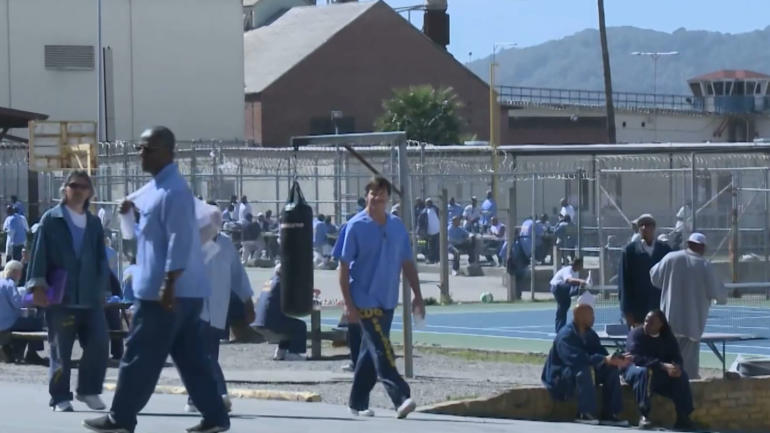In the United States, private prisons are a multibillion-dollar industry currently operating in 27 states.
Earlier this month, California became the first state to ban such prisons which also include civil and immigration detention centers.
CGTN’s Ediz Tiyansan reports.
The move was welcomed by advocates for criminal justice reform and immigrant rights, but most activists agree that a lot more needs to be done.
Back in 2006, the number of prisoners in California had reached twice the capacity of all state prisons combined.
And contracting private prisons and detention centers was seen as a remedy at the time, particularly in dealing with the surge in immigrant detentions.
A review published this year by the Inspector General of the Department of U.S. Homeland Security also found over 14,000 health and safety deficiencies during various inspections at contracted facilities over the past three years.
Despite a long list of deficiencies, which include failure to notify the Immigration and Customs Enforcement Agency about sexual assaults, penalties were rarely imposed.
Aside from transparency issues, high costs of services were also a major criticism against the private companies involved.
Dolors Canales is an advocate for criminal justice reform. She says although the bill is a step in the right direction, it doesn’t stop companies from making millions of dollars in other services.
“California state prisons are run by vendors that have become multimillionaires from “Global Tel Link”, the phone call process Our family members inside they can’t mail a package into somebody that’s in prison, we have to go through corporate vendors, there’s a whole list of them,” said Canales.
“Even to send money we have to pay a technology company now to send money to send pictures everything has become corporate vendors that they contract with, so people are still making millions of dollars off of incarceration.”
GEO Group and CoreCivic, are the two companies that own or run these facilities in California.
They defend their business model, saying they provide the much-needed space for prisoners, who’d faced overcrowding in state facilities.
California has come a long way in reducing its prison population, which is now around 115,000 inmates -just below the target capacity ordered by the Supreme Court.
Even though only a fraction of those prisoners are actually kept in private facilities, their transfer to the state prisons is still going to be hard.
Twin Towers Correctional Facility is the largest single jail facility in the world, and yet, is among many state facilitates in California that face severe over-crowding.
That’s why many rights groups and activists come together in the name of “Alternatives to Incarceration” to work towards the common goal of de-carceration.
In his second month in office, U.S. President Donald Trump reversed an Obama-era order to end private prisons for federal inmates.
So while California’s decision will apply to state controlled prisons starting next year, private companies will still manage federal prisons, city jails, centers for substance abuse treatment, transitional housing, and parole services.
 CGTN America
CGTN America

